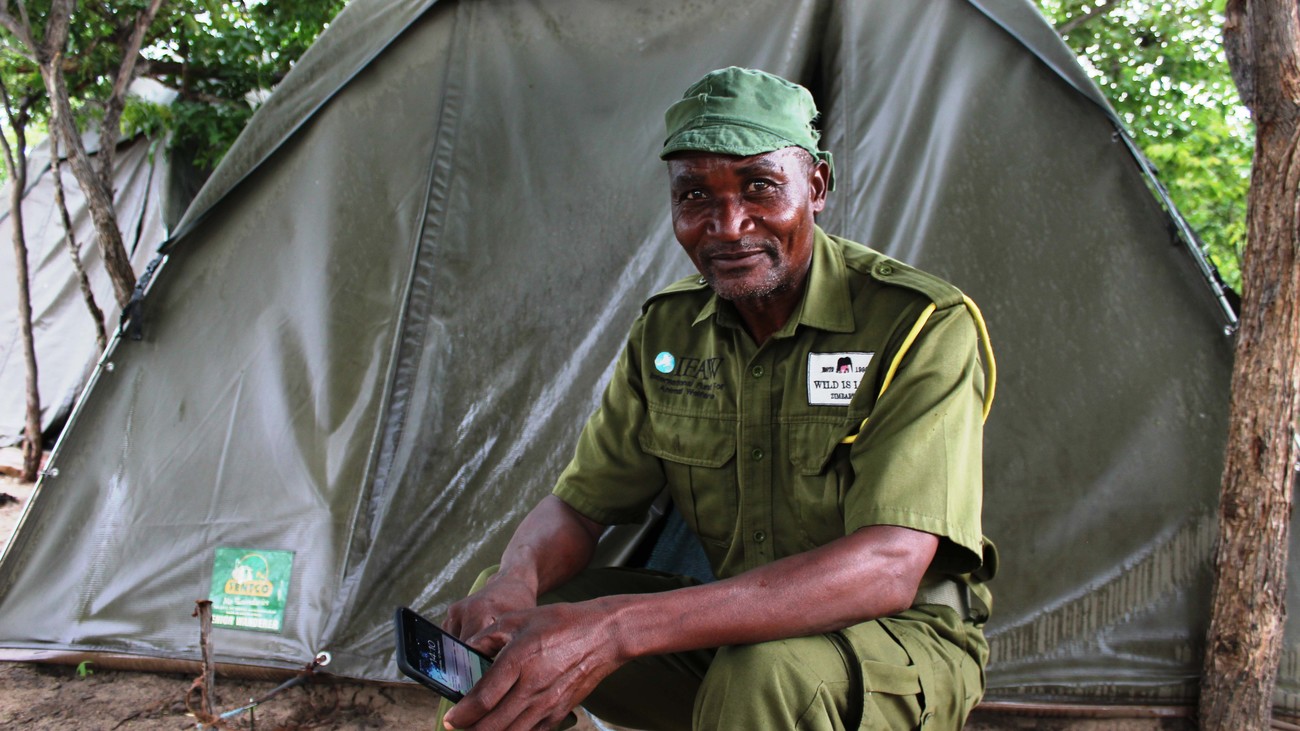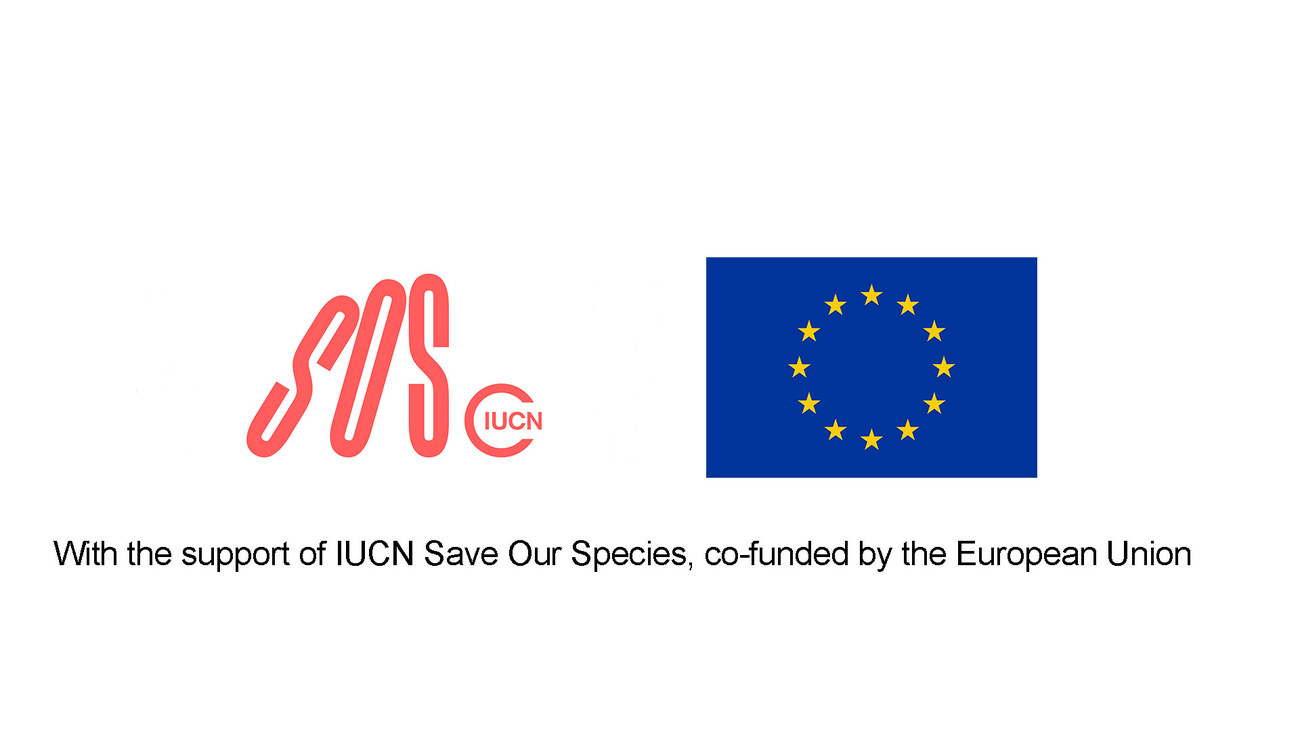Blog
Long’uro: one elephant’s story of immense resilience
Read moreto protect Panda Masuie's wildlife, we must first support the rangers

A broad smile lights the face of forest ranger Sikhosana Ndlovu as he tells the story of the elephant that had shuffled around in the red mud less than a metre from his tent the previous night.
“I called out, ‘Ey! Ey! Ey!’ so he would know I was in the tent. He was only trying to find food - maybe mangos - and he didn’t want to cause trouble,” the 57-year-old father of three says while preparing for anti-poaching patrol on a rainy day in the Panda Masuie Forest Reserve in north-western Zimbabwe. “The elephants are all around us and our job is to look after them, even when they are right next to our tents.”
Surprisingly, tents like the canvas one ranger Ndlovu used to shelter from his elephant visitor, and last night’s rain, are relatively new equipment for many of the rangers working in the forest.
The onset of the COVID-19 pandemic has devastated tourism in Southern Africa, and Zimbabwe has not been exempt. With a large part of the income earned from tourism used to support agencies like the Forestry Commission in their work to protect wildlife, the help of private partnerships and international agencies has been a game-changer.
The Forest Reserve is also the site of the Panda Masuie Release Site, a unique project which “rewilds” orphaned elephants rescued and rehabilitated by its mother project, the Wild is Life-ZEN elephant nursery 700 kilometres away in Harare. Here, the rescued elephants regularly interact with the more than 260 wild elephants that have been counted roaming the landscape.
Keeping the landscape free of poachers is critical to their success, and poorly equipped rangers who were sometimes bedding down under the trees at night, in the mud in the rainy season, and in the dust in the cold, dry winter needed more support.
The Protecting Panda Masuie project acknowledges hardships faced by rangers may erode morale, particularly when routine work requires encountering potentially dangerous animals including elephants, lions, and buffaloes, not to mention even more dangerous armed poachers.
The Panda Masuie Forest Reserve is co-managed by the Forestry Commission of Zimbabwe and the Wild is Life Trust (WIL, a Zimbabwean not for profit organisation) with the help of IFAW (the International Fund for Animal Welfare). Protecting Panda Masuie is a project of IFAW, supported by IUCN Save Our Species and co-funded by the European Union.
Between them the agencies supply rations, fuel, equipment and training to ensure the forest, and the wildlife, are protected from ivory and meat poachers as well as traffickers, including those trading in highly endangered pangolin.
The Forest Reserve spreads across 34,000 hectares² of unfenced wild landscape close to the famous Victoria Falls.
Patrolling the vast area is hard work: fourteen forest rangers are deployed across four outlying bases for two weeks at a time, far from their families and amenities such as running water or electricity.
"The assistance we are getting makes us more effective in our work to protect animals. The issue of new boots, uniforms, backpacks, tents, and modern equipment helps motivate our rangers in their work to protect Panda Masuie," said Senior Anti-Poaching Ranger Femberai Mutsvangwa during a recent interview held at the Commission’s nearby Fuller Forest HQ.
Proof of the improved management effectiveness are recordings by trail cameras. Triggered by animal movement and placed at strategic points in Panda Masuie, the cameras are recording increased numbers of elephants, wild dogs, buffalo and other species including pangolins. Wild dogs are listed as endangered on the IUCN Red List and elephants and Temminck’s pangolin are listed as vulnerable.
Another component is the provision of SMART (Spatial Monitoring and Support Tool) technology enabling rangers to keep records of the location of game sightings, evidence of poachers, and any species of interest, animal or plant, on their cell phones. This information is remotely downloaded by managers without rangers having to use valuable fuel and time travelling to regional head offices.
Panda Masuie’s immediate neighbour is the Masuwe Community where about 800 people, from 118 households benefit from an electric fence built to protect their crops from elephants. Eight people, each with 4-6 dependents, have been employed and trained to maintain the fence.
The health of about 600 community-owned cattle and 30 dogs is addressed by a veterinary health programme including dipping of livestock.
Opening a storeroom and revealing a pile of wire snares recovered by his teams, senior ranger Mutsvangwa also smiles broadly, just as his colleague did while talking about his elephant visitor a few days previously.
“Look at these,” he said. "These could have killed lots of animals but we found them before they could do harm. There is a long way to go but rest assured things here are in good hands,” Mutsvangwa said with confidence.
With the support of IUCN Save our Species, co-funded by the European Union
IUCN Save Our Species aims to improve the long-term survival prospects of threatened species. It also focuses on supporting the species habitats and working with the communities who share this habitat. It achieves success by funding and coordinating conservation projects into multiple initiatives across the globe. European Union The Member States of the European Union have decided to link together their know-how, resources and destinies. Together, they have built a zone of stability, democracy and sustainable development whilst maintaining cultural diversity, tolerance and individual freedoms. The European Union is committed to sharing its achievements and its values with countries and peoples beyond its borders.

Our work can’t get done without you. Please give what you can to help animals thrive.
Unfortunately, the browser you use is outdated and does not allow you to display the site correctly. Please install any of the modern browsers, for example:
Google Chrome Firefox Safari